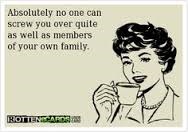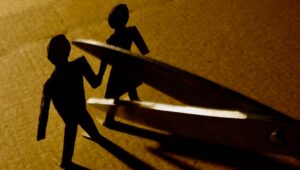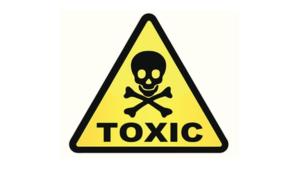
I am about to attend a wills variation mediation where the three adopted siblings are contesting their deceased mother’s estate and the only agreement we have is that all three siblings hate each other- they are the screwed up results of a very dysfunctional family where the deceased and her ” mommy’s boy” had an extra ordinarily close relationship to the detriment of the other two adopted siblings.
Regrettably, in the world of estate litigation my work almost exclusively involves the children of dysfunctional families who collectively and individually are often ” screwed up.”
Over my 40 plus years of practice , I have seen innumerable people who are the screwed up products of a dysfunctional family.
For the most part they show the emotional scars of growing up in such an environment once we delve into the family background .
What is continually amazing to me is how often people have grown up in dysfunctional families and for a great part of their life, considered the family living situation to be in the realm of normal, when in fact by objective standards, it could be nothing other than dysfunctional .
Dysfunctional families invariably have so much conflict, neglect, personality disorders, and just general unusual behavior that over time it leads family members to accommodate such behavior to the point that it can be problematic.
The behavior invariably becomes generational – the dysfunctional parents behavior is emulated by their children who in turn become parents, and exert the same behavior upon their children .
Dysfunctional families are typically strained at the best of times, and when added stressors such as unemployment, relocation, physical or mental illness occur they can cause the existing conflicts to become greatly exacerbated .
One of the great stigmas of dysfunctional families is not only the internal shame that each member may have, but also the societal standard that state intervention in the sanctity of marriage and the family was not to be encouraged .
It is only in recent years that the plight of the dysfunctional family has made the news so to speak and individuals are speaking out with a greater degree of frequency and coherency.
The “mummy dearest” books that occurred about 50 years ago were an indication of what was to come in future years.
Children being as adaptable as they are learn to adapt and function within dysfunctional families by often adopting or being assigned a role .
The role may vary from that of the “perfect child” to be modeled by the others , to the “problem, a.k.a. scapegoat”, with the other siblings adopting or being assigned variations of the family clown, the caretaker, the passive kid, or the manipulator.
Needless to say these learned forms of behavior in the critical years of development are maintained and continued throughout the life of the role modelled child.
Negative criteria associated with dysfunctional families
The list of negative criteria as a result of being raised in a dysfunctional family is long and this article is not meant to be exhaustive on the topic . There are no positives – none.
I have come to realize that almost every street person is living there is a result of a dysfunctional family , ( except for perhaps the onset of mental illness in later life) .
Mental health issues such as depression and anxiety are very common as are addiction issues relating to alcohol, drugs, gambling and the like.
Many of the children of dysfunctional families simply had to grow up too fast and missed out on childhood -the lucky ones were not abused physically or sexually , but virtually all of them were emotionally scarred in some manner , whether by accident, neglect or deliberate acts .
The more physical , sexual or emotional abuse their has been the greater difficulty the child will have been forming healthy relationships with not only their peers, but in particular in long-term romantic relationships and marriage.
Many students struggle academically in school from everything from lack of food and sleep to having to drop out of school to support the family
Struggling for recognition and affection many turn to gang membership or promiscuity.
Self-discipline problems are notorious in that many children are raised without boundaries and without being taught the fundamentals of how to participate in society.
Instead they may become compulsive spenders or procrastinators afraid to take steps .
Almost all of these children have low self-esteem issues that makes them more vulnerable to predators, manipulators and abusers .
The girls are more likely to become pregnant and involved with abusive men while the boys are more likely to become abusive anti-authoritarian males .
Perhaps the greatest problem all is that the dysfunctional behaviors are invariably perpetuated in other relationships , and in particular by their own children .




